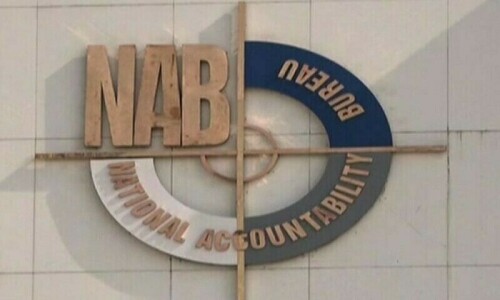HYDERABAD, Jan 15: The government should strengthen the agriculture sector with investments and necessary reforms, speakers said at a seminar here on Thursday.
The Sindh Agriculture and Forestry Workers Coordinating Organisation (SAFWCO) in collaboration with the Oxfam-GB held the seminar on “Food crisis in Pakistan: 2008 and beyond - a micro picture of Sindh.”
Economist Dr Kaiser Bengali said that around 70 per cent expenses in any household were made on food. Around 31 per cent population in Sindh, except Karachi with 39 per cent, followed by 51 per cent in Balochistan, 26 per cent in Punjab and 29 per cent in the NWFP lived below the poverty line, he said.
Furthermore, around 12 to 14 per cent hike in food prices since 2005 had badly impacted Sindh and Balochistan provinces, he said adding that the increase was 25 per cent in 2008 and 100 per cent between 2005 and 2008. He lamented lack of investment in agriculture sector since last 30 years. Regarding bread, he said that it was linked with water whereas the country was in the grip of debate over water storage and building of reservoir.
He differed with the idea of water storage because dams never fulfil the need as Tarbela and Mangla, both were empty and had there been a third it too would be empty due to inefficient usage. He supported drip irrigation as flood irrigation leads to water logging and salinity.
Kaiser Benglai was of the view that farm sector was in need of massive investment, particularly in inputs and also emphasised on crop insurance for doing away with the crisis in times of bumper yields when farmers fail to get actual price for their produce and forced to switch over to some other crop causing shortages.
He criticised the state for not paying attention towards this sector as during the first 30 years of its inception, the country remained a development one and in the post ’77 period no economy-based project could be executed.
Security needs did not allow any money for up keeping the existing infrastructure with military infrastructure growing tremendously, said the economist.
During Bhutto’s government in 70s, the development expenditure stood at 21 per cent with the GDP growth at 4.5 per cent, while Zia’s era witnessed 2.5 per cent development expenses, 9 per cent defence and the GDP at 6 per cent, Kaiser Bengali said adding that resources were then diverted towards defence housing societies and cantonments.
State priorities always topped the agenda while the wheat crisis took its root during the tenure of caretaker Finance Minister Shahid Javed Burki who refused to open LCs for its import in 1997 just to appease World Bank, he said along with criticising Shaukat Aziz for his jugglery of growth rate figures. He emphasised on bringing the economy on tracks through democratic means.
In response to a query he rebuffed the notion that the present water crisis was because of the Baglihar Dam. He made it abundantly clear that it was a hydro power project without any tributaries, so India was not responsible for it. He anticipated bigger food crisis as glaciers were not likely to melt in near term.
Assistant Professor Dr Aijaz Ahmed Khunharo of the Sindh Agriculture University delving on land said that Sindh’s cultivable land stands at 98,200 hectares which in 1990 was at one million hectares and in 1999 at 1.1 million hectares. This trend, he said, showed the province backtracking in agriculture. He lambasted pesticides dealers for establishing their monopoly by hoarding stocks and trading these after fixing market prices themselves to earn huge profits.
Michel Anglade of Oxfam GB speaking on global food security crisis said that the South Asian region was not investing in agriculture, affecting food reserves.
Suleman Abro criticised lack of planning for facing food crisis despite producing sufficient wheat.















































Dear visitor, the comments section is undergoing an overhaul and will return soon.